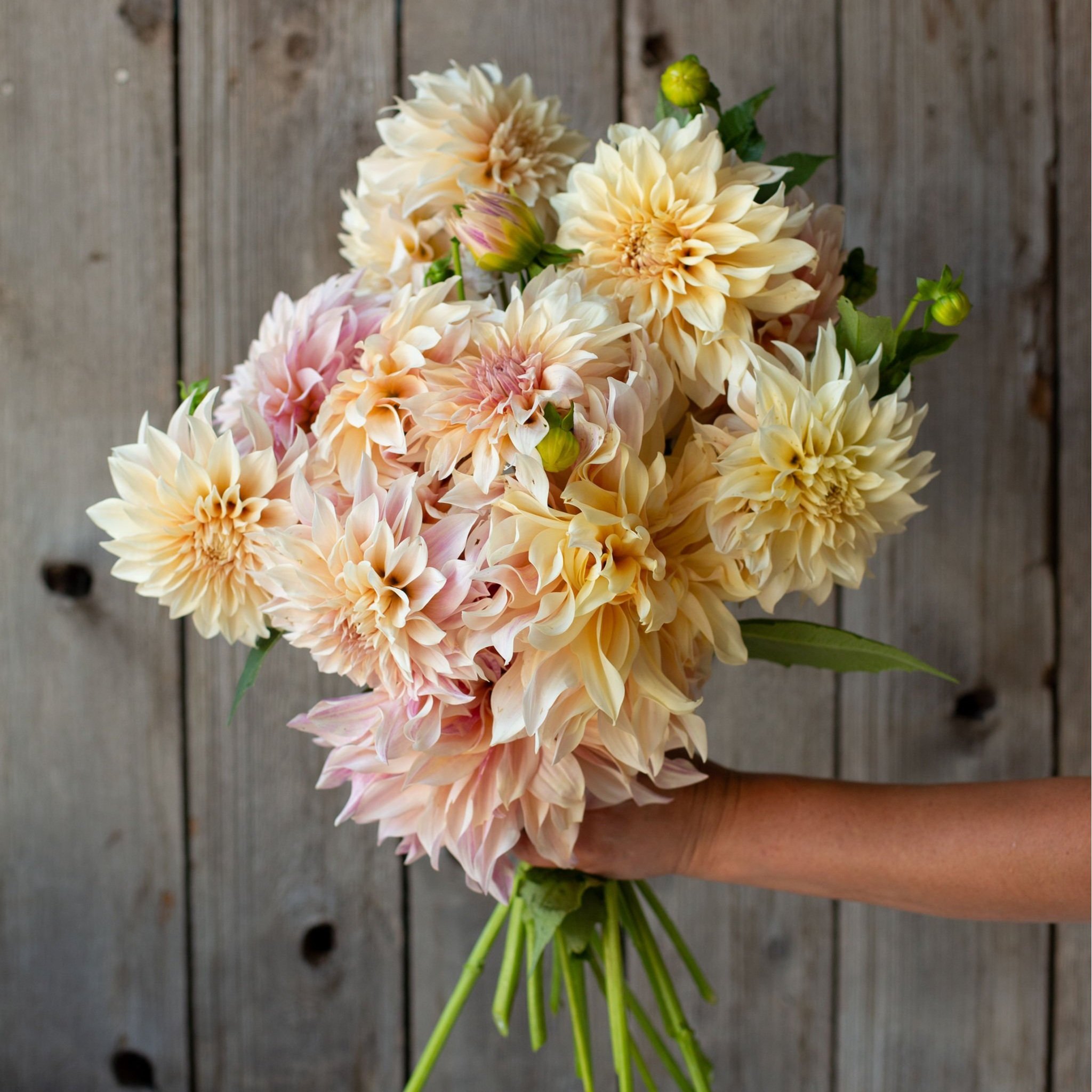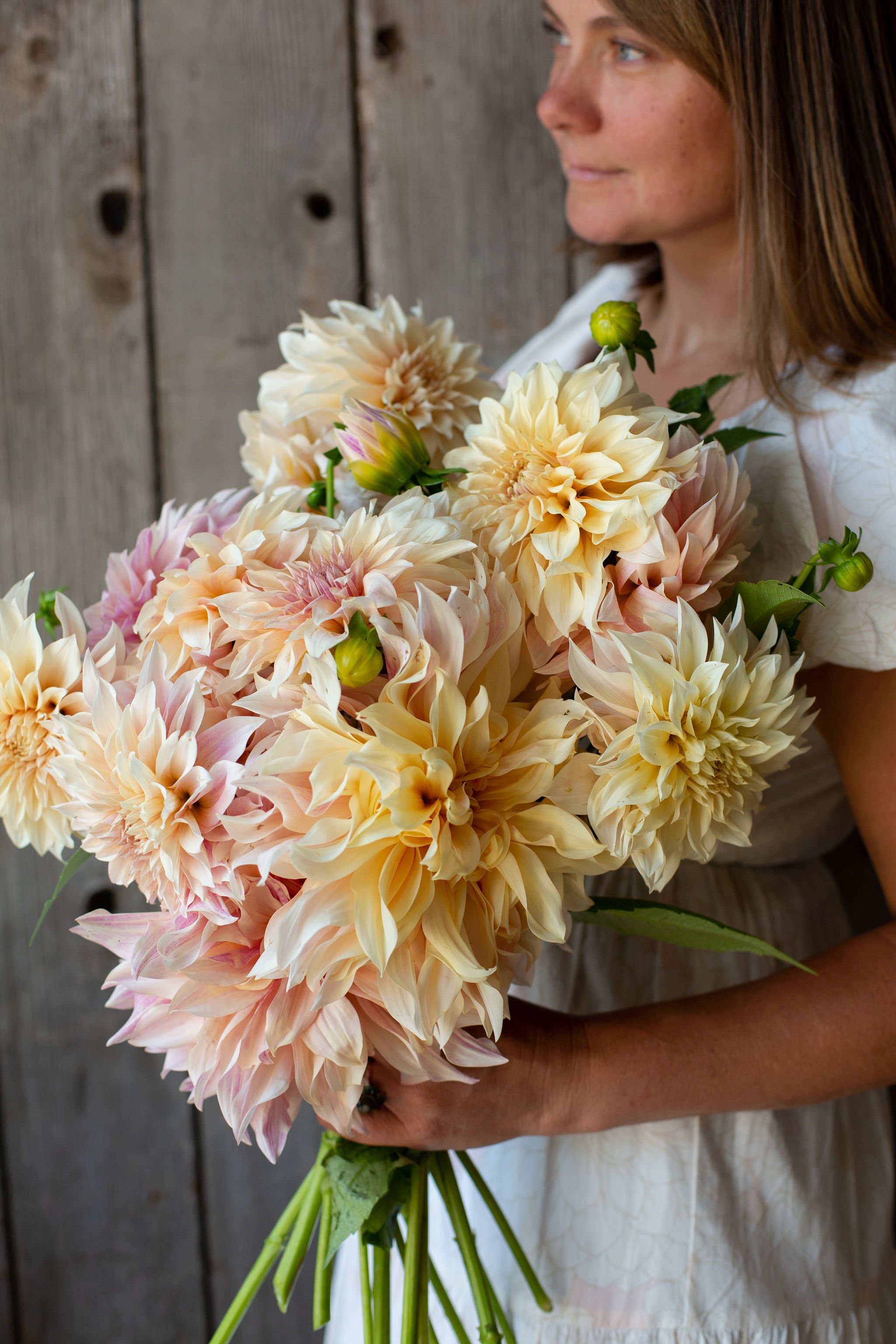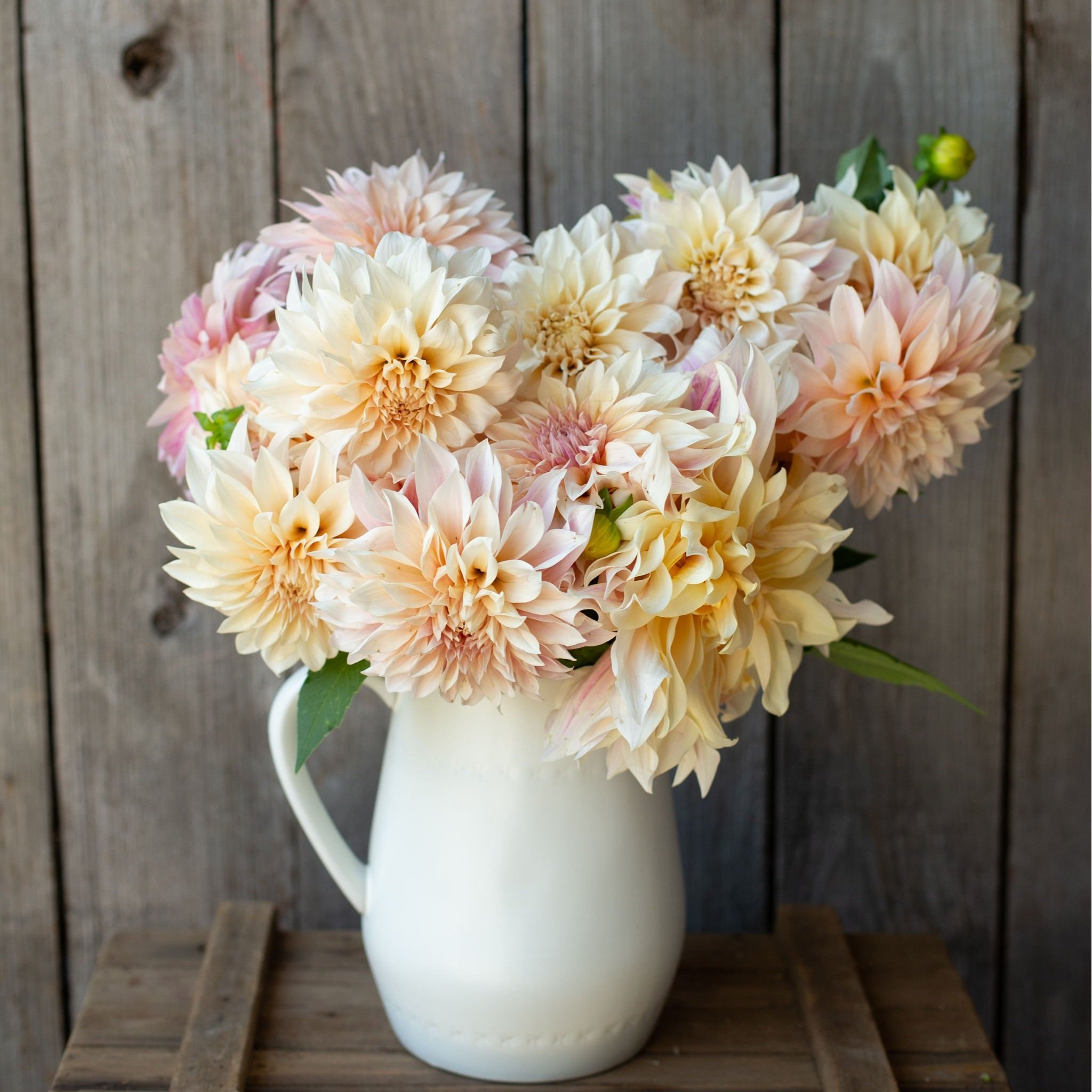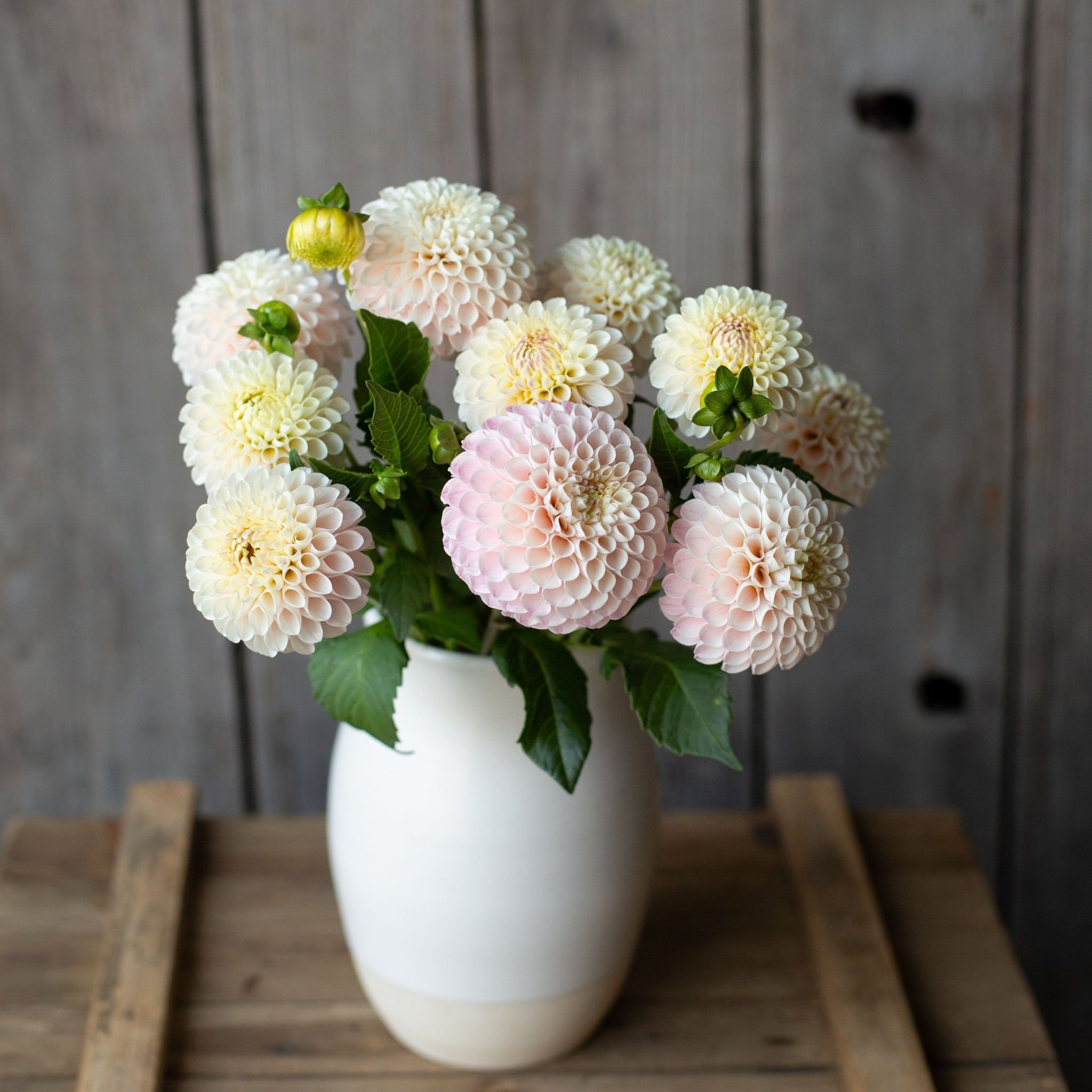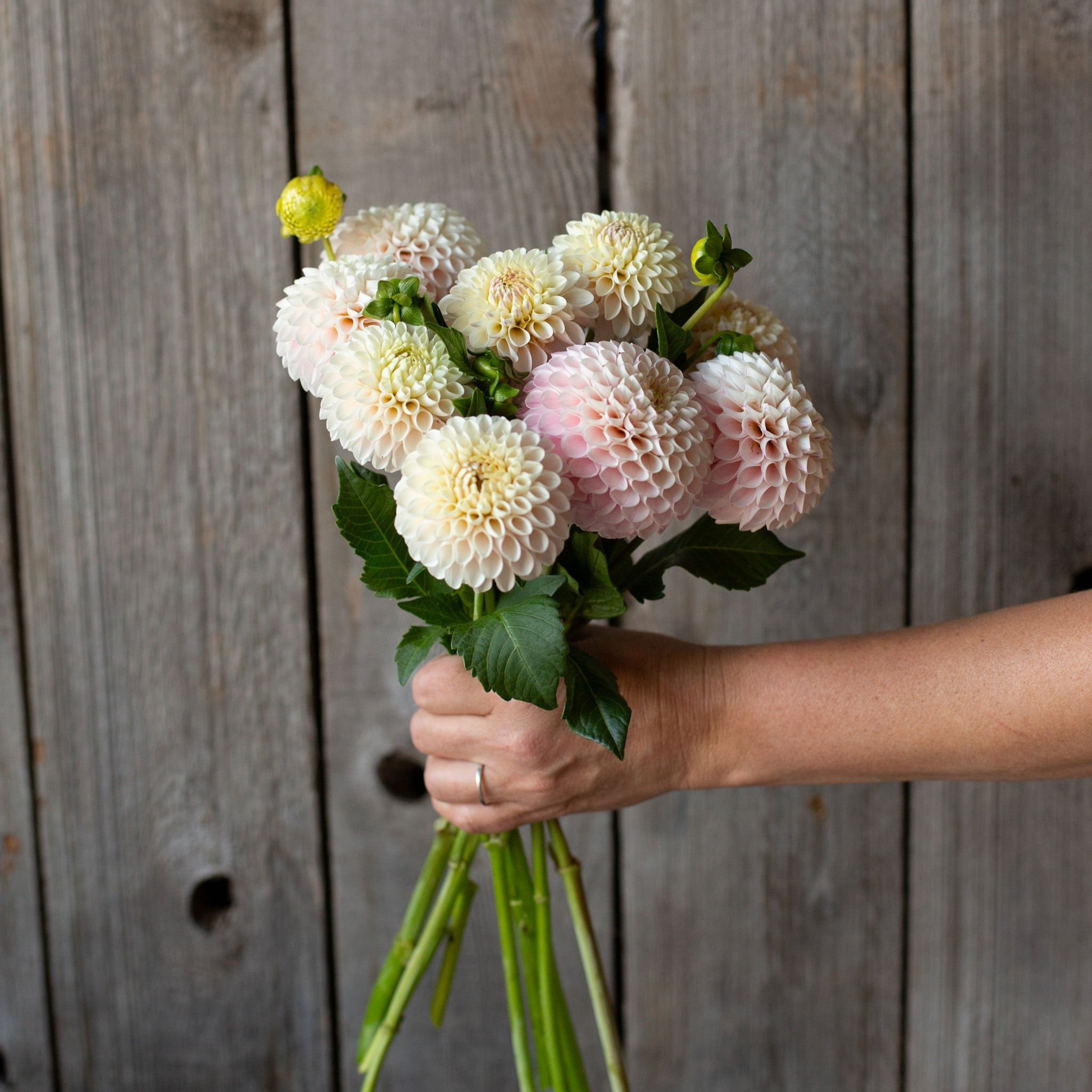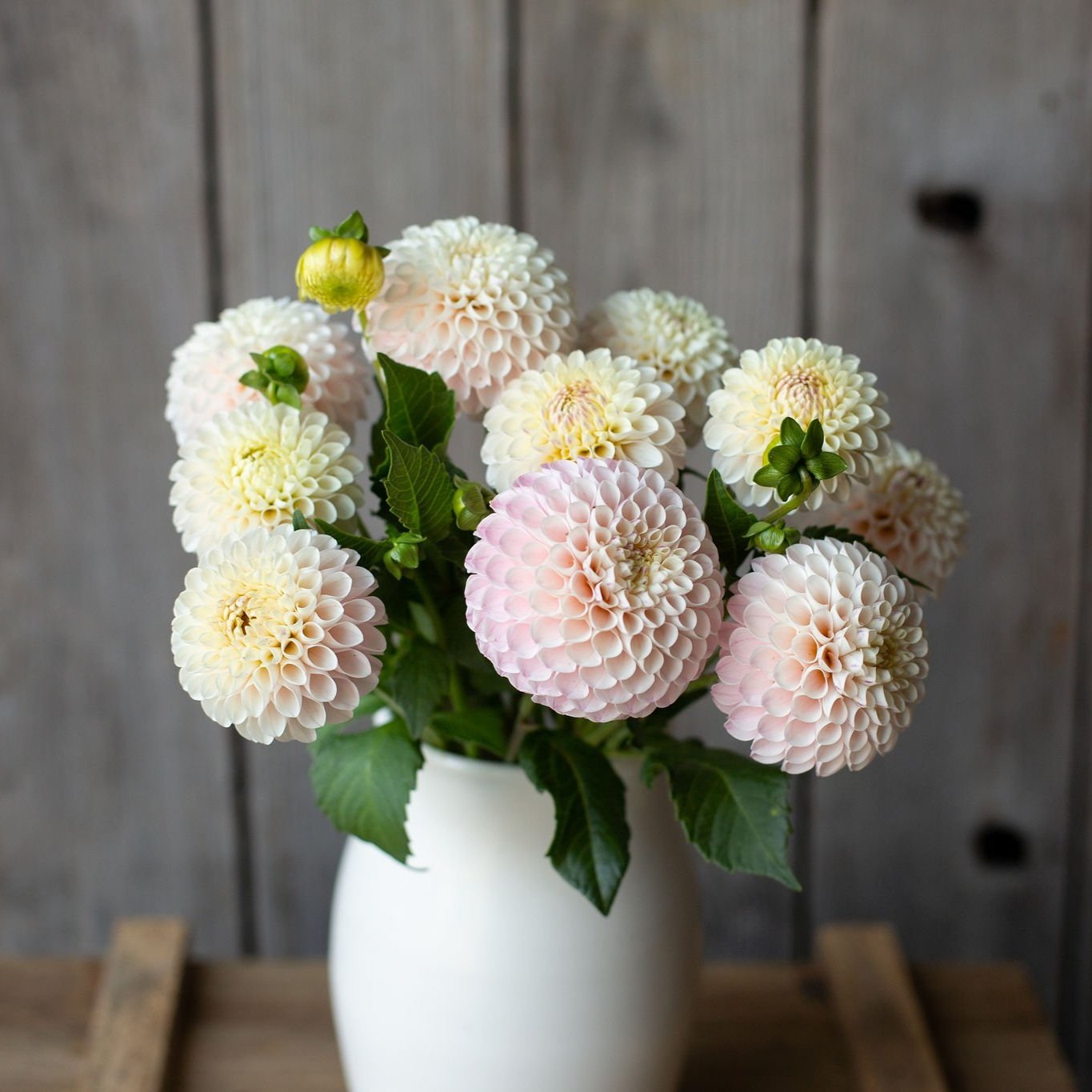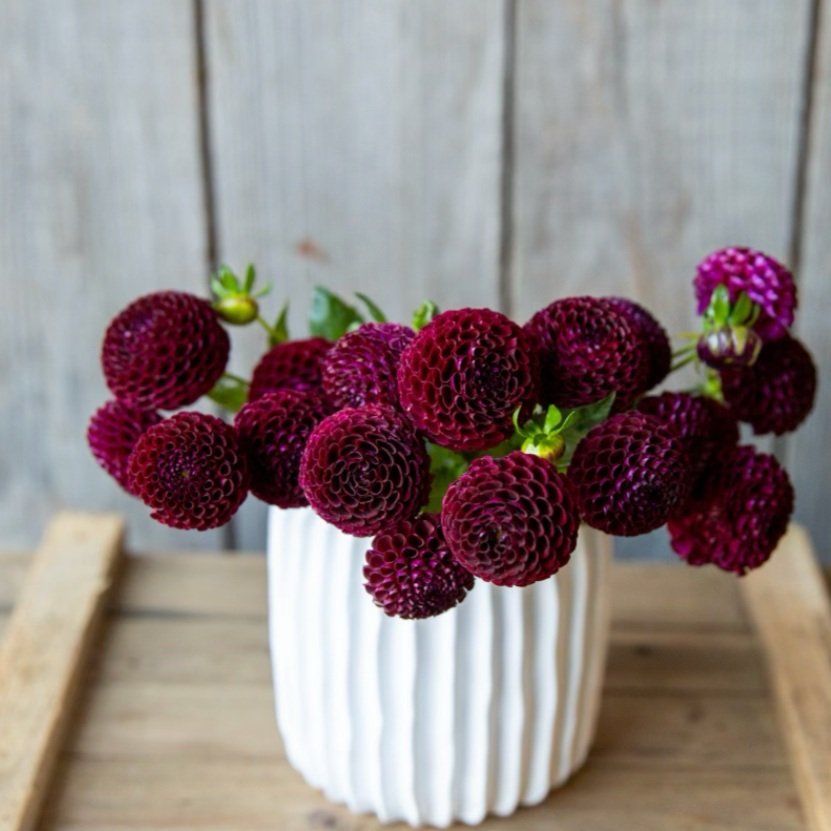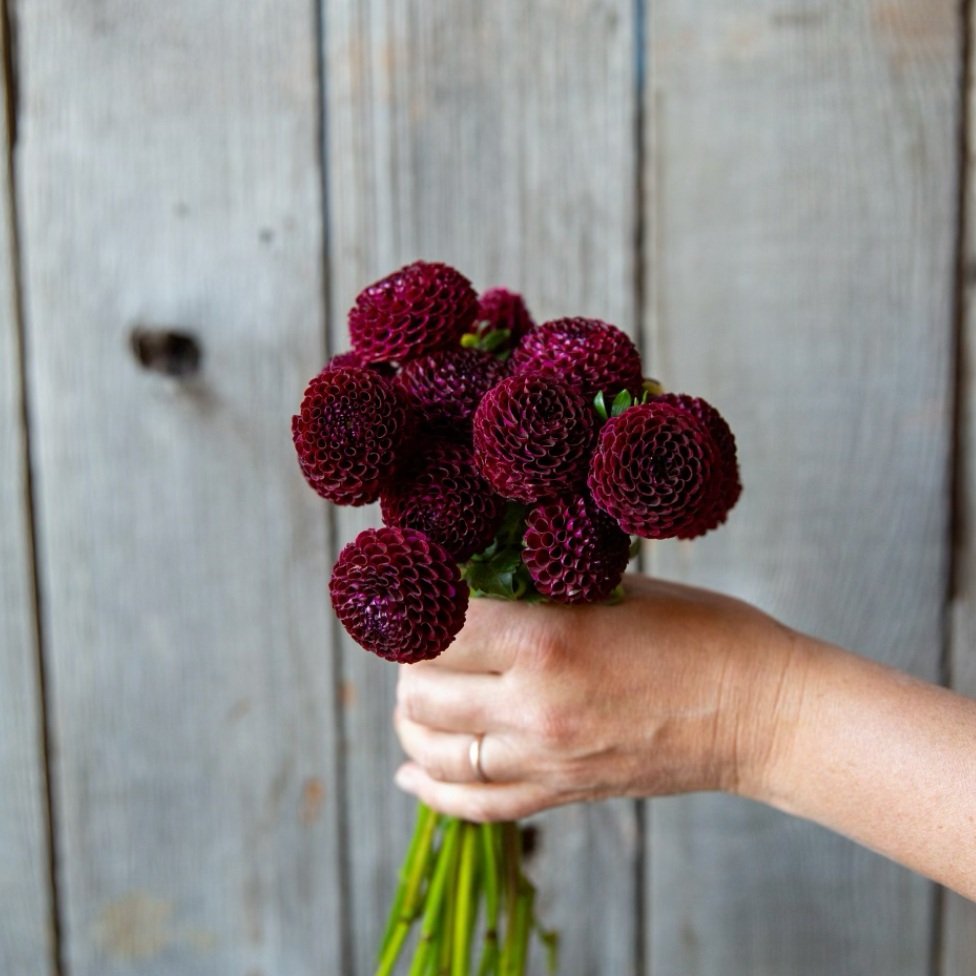Café au Lait
Here she is, the one and only Café au Lait! She is the queen of all dahlias, presenting painterly pastel blooms. From one plant you may receive blooms in blush, nude, light brown, tan, dusty peach and dusty coral. Large double blooms have tiny curls in-between wavy romantic looking petals. Once fully open there is a cluster of tiny curly florets. She is lush and soft. One can never grow enough Café au Lait. Always in demand by florists, designers, market consumers and growers.
Here she is, the one and only Café au Lait! She is the queen of all dahlias, presenting painterly pastel blooms. From one plant you may receive blooms in blush, nude, light brown, tan, dusty peach and dusty coral. Large double blooms have tiny curls in-between wavy romantic looking petals. Once fully open there is a cluster of tiny curly florets. She is lush and soft. One can never grow enough Café au Lait. Always in demand by florists, designers, market consumers and growers.
Here she is, the one and only Café au Lait! She is the queen of all dahlias, presenting painterly pastel blooms. From one plant you may receive blooms in blush, nude, light brown, tan, dusty peach and dusty coral. Large double blooms have tiny curls in-between wavy romantic looking petals. Once fully open there is a cluster of tiny curly florets. She is lush and soft. One can never grow enough Café au Lait. Always in demand by florists, designers, market consumers and growers.
We guarantee your tuber to have a live eye and be true to the variety that you ordered.
Please note, all stock is subject to survival in storage prior to shipping. We will issue a refund to the original form of payment if we notice that a tuber in your order is not viable after being stored.
Guarantees do not cover:
Customer negligence to include (but not limited to) improper storage prior to planting, improper planting (pots too small, tubers planted vertical, crowns above soil, etc.), planting too early or late for grower’s season, or over watering.
Problems caused by animals, pests/insects, or rodents.
Tubers planted that were used for cuttings.
Acts of Mother Nature.
Rot after planting.
Virus and/or disease issues (such as gall).


